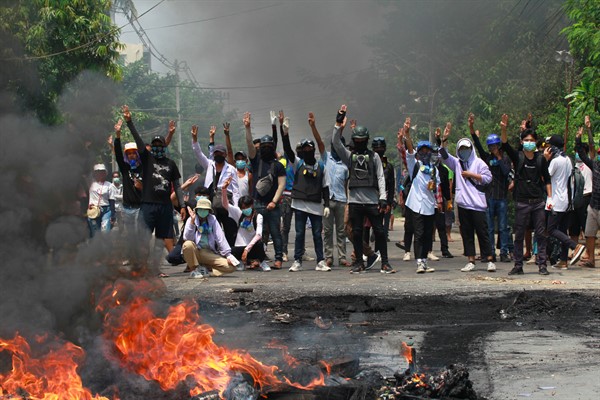In the weeks since the Feb. 1 coup that overthrew Myanmar’s democratically elected government, civilians have responded with relentless, organized outrage, mobilizing street protests, general strikes and other disruptive forms of nonviolent resistance. Ousted lawmakers have formed a parallel administration, called the National Unity Government, in defiance of the military regime. The Tatmadaw, as the armed forces are known in Myanmar, has countered with an escalating crackdown, killing over 700 demonstrators and injuring or detaining thousands more. The rest of the world, meanwhile, has issued statements of condemnation and piecemeal sanctions that have had little impact on a country descending into chaos and widespread violence.
While the practical possibilities for international intervention are limited, the United States and the European Union can do better with the tools available to them. Myanmar’s unfolding catastrophe is as much a battle for wealth and resources as for political power. Even as the country spirals toward state collapse, coup mastermind Gen. Min Aung Hlaing remains willing to impose authoritarian rule to ensure his control over the country’s vast resources. Aggressive, coordinated sanctions could change his calculus.
On March 25, the U.S. sanctioned Myanmar Economic Corporation, or MEC, and Myanmar Economic Holdings Limited, or MEHL, two military-owned conglomerates whose broad financial interests range from agriculture to cement production. The Biden administration followed up on April 8 by sanctioning Myanma Gems Enterprise, a state-owned company that controls the mining and trade of Myanmar’s rich gemstone deposits. The United Kingdom has taken similar actions against MEC and MEHL, and the EU followed suit this week.

